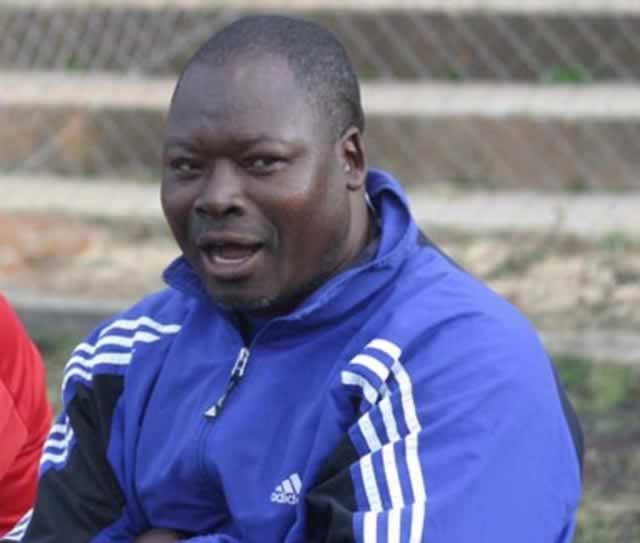Children with cancer get treats

Tafadzwa Ndlovu Lifestyle Reporter
Children living with cancer in Harare last month got a special treat from Joina City and Helen Cakes after the two organisations visited their centre at Parirenyatwa Group of Hospitals.
Joina City, Kidzcan volunteers, and Helen Cakes walked through the corridors and wards giving all the children and mothers cake pops donated by Helen Cakes, Easter gifts from Kidzcan and Easter eggs from Joina City.
The children were in a cheerful mood and smiling all the way with hope written on their faces despite them being in hospital and suffering from a terminal disease.
Most of the children at the cancer ward are supported by Kidzcan, the only organisation in Zimbabwe dedicated to increasing the survival rate of children living with cancer.
Organiser Ms Varayidzo Nhandara expressed concern over the welfare of the children at the cancer centre.
“As adults we sometimes fail to embrace the beauty life has to offer by always complaining and comparing material wealth,” she said.
“When you have an opportunity to look into the eyes of a child diagnosed with cancer, or recovering from burns of all degrees and still see hope and joy in their souls your value system shifts.
“We should continue to do our best to help the less fortunate and emulate the joy children constantly have and take a moment each day to remember the sick children and continue to pray for the mothers and fathers who sit in the hospital wards everyday while their children receive treatment.”
The children were also entertained by clowns and cartoon parodies like ‘Ben 10’ and ‘Silly Billy’ leaving an exciting environment for the chidren.
However Ms Nhandara said funding was a challenge as her organisation strongly relied on donors for acquiring cancer drugs.
“Kidzcan relies solely on the generosity of donors,” she said. “We require assistance with chemotherapy drugs and related drugs and blood and blood products.”
“We have traditionally had a strong local base of funding however with the struggling economy our local donors are stretched and cannot support our organization as much as they would like to and we desperately need,” said Ms Nhandara
Kidzcan is working in collaboration with Parirenyatwa Hospital which houses the only paediatric oncology unit in Zimbabwe.
It focuses on improving the provision of an early diagnosis and effective treatment of cancer in children, as well as contributing to the well being of those children suffering from cancer and other related life threatening blood disorders.
Cancer is the number one disease killing children from the age of six months to young adulthood. It is the leading cause of non-accidental death in children.
Unlike adult cancers, the causes of most childhood cancers are still unknown and are not linked to lifestyle and environmental risk factors.
The incidence of childhood cancer is highest in the first five years of life, between ages zero to four years old.
According to the International Society of Paediatric Oncology and the International Confederation of Childhood Cancer Parent Organisations 175 000 children are diagnosed with cancer worldwide and eventually about 19 000 die annually.
If cancer is detected early enough in children, there is a 70 percent chance of survival.
Up to 80 percent of children with cancer live in developing nations and more than half of these kids will die because they lack access to prompt, effective treatment.
Every day, about 440 children worldwide are diagnosed with the disease and some 250 die from cancer.
The Zimbabwe Cancer Registry says the most common cancers among all boys (paediatrics) include Leukaemia (cancer of the blood) at 17,7 percent, Retinoblastoma (eye cancer) 13,3 percent, Kaposi sarcoma 12,2 percent and Wilms Tumour (cancer of the kidney).
Among all Zimbabwean girls, Kidney cancer is relatively high at 22,6 percent followed by Retinoblastoma at 13,1 percent, brain and nervous system cancer 10,7 percent, Kaposi sarcoma 9,5 percent and Leukaemia 9,5 percent.
Most children and teenagers diagnosed with cancer can be treated successfully with statistics showing that from 1975 to 2010, the number of deaths from childhood cancer has decreased steadily by more than 50 percent.
It is estimated that 1 350 deaths from cancer will occur this year in children younger than 15 and 610 deaths from cancer in teens aged 15 to 19.
ICCCPO says, to avoid problems in future, it is important to detect cancer symptoms early.
These include:
White spot in the eye, squint, blindness, bulging eyeball.
Lump in abdomen/pelvis, head and neck, in limbs, testes and glands
Unexplained prolonged fever for over two weeks
Loss of weight, pallor, fatigue, easy bruising or bleeding
Aching bones, joints, back, and easy fractures
Neurological signs; change or deterioration in walk,
balance, or speech, regression of milestones
Headache for more than two weeks with or without vomiting and enlarging head.








Comments